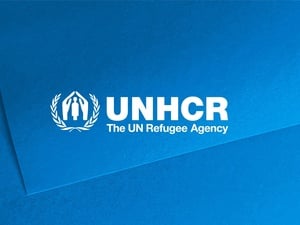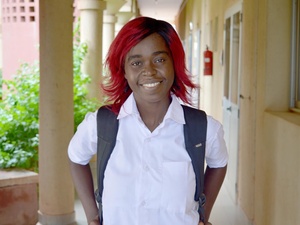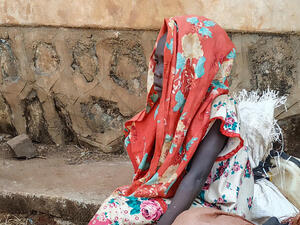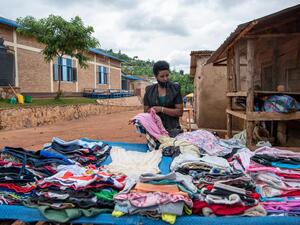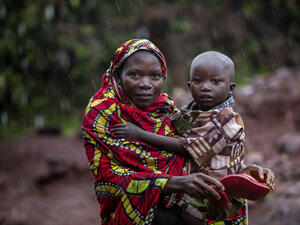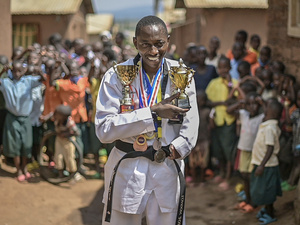Rwanda: Pace of involuntary returns to DRC slows down.
Rwanda: Pace of involuntary returns to DRC slows down.
Controversial return movements have slowed from refugee camps in northern Rwanda to the eastern Democratic Republic of Congo (DRC), where more than 8,000 Congolese of Tutsi origin have returned in the past two weeks.
From 600 persons returning daily a week ago, the average rate of return fell to less than 100 over the weekend, then climbed again on Monday, when 200 departures were reported from one of the Rwanda camps - Byumba. By this morning, four trucks organized by Rwandan authorities had arrived in the northern Rwanda camp. Final figures of those departing were not immediately available.
Despite a UNHCR information campaign that has been running since Friday in the refugee camps of Byumba and Kibuye to advise refugees that any return to DRC should be voluntary, refugees continue to report intimidation from local security forces banging on their doors and yelling that it was time they went home. Once on the DRC side, many returnees say they left hurriedly, leaving behind personal belongings and even family members - an indication they left under duress. Some, however, insisted that they left of their own will.
In the village of Kitchanga, 80 km north of Goma, the women speak more openly about being forced to return to the DRC. There, returnees dwell in an old factory under very difficult conditions. They sleep on the floor without mattresses or privacy and fear that the little food they brought along from Rwanda will soon run out.
Many returnees UNHCR spoke to on Monday complained that the sanitary situation was intolerable, with only three latrines for a population of 8,100. They are also in need of potable water. They are begging for plastic sheeting to cover the floors and build shelters to protect them from rain leaking out of the perforated roof. More of the families that had transported their old plastic sheets from Rwanda are moving out of the decrepit factory buildings to set up makeshift shelters on the flanks of the surrounding hills.
A male returnee said the living conditions were "difficult" and that the families camped there would move on to their final destination in Masisi if they had transport to do so. But in the camp, the majority are women and children.
Since the forced movement started two weeks ago, the Congolese of Tutsi origin have been transported by bus from the camps in Rwanda up to Lake Kivu, where a ferry takes them across to Goma. From Goma they continue the ride to Kitchanga. However, their homeland is in Masisi region, 107 km north-west of Kitchanga. The few who are originally from villages closer Kitchanga continue the journey homeward on foot.
Three Congolese of Tutsi origin have reportedly gone back to Byumba camp in Rwanda after being taken to DRC last week. Two of them were seen in the camp yesterday. It was not clear if they had returned to fetch their families or belongings left behind or whether they intended to stay in Rwanda. UNHCR staff in Byumba, however, said that there could be more returnees making their way back to Rwanda, although numbers were hard to verify.


